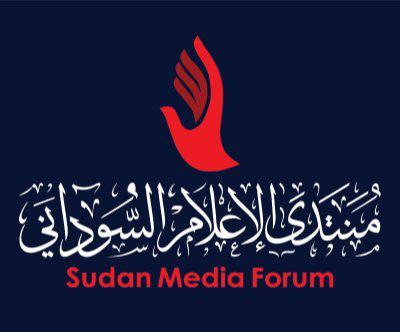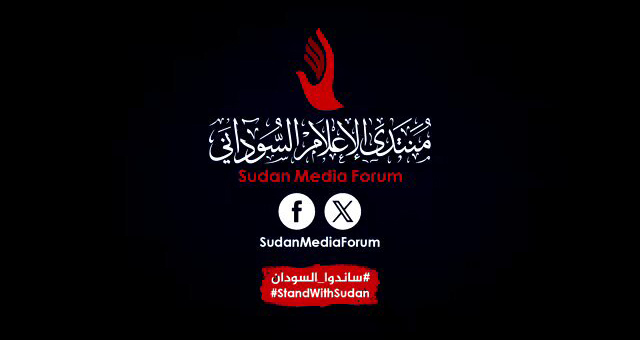Hate speech fuels future wars in Sudan

Prepared by Hiam Taj Al-Sir of Female Journalists Network for Sudan Media Forum
Feminist leaders have called for resisting advocates of war, hatred, and racism by all peaceful and effective means, while clarifying the serious impact of the continuation of the war on people’s destinies. She stressed the need to resist any call that constitutes incitement to discrimination, hostility, or violence, and not to impunity for the advocates of hatred and racism for their crimes.
Women leaders called for the establishment of monitoring and evaluation units to monitor hate speech trends, collect reports, and draw the attention of key institutions and local, regional and international civil society. It also called for the establishment of research centers to study and monitor violations that have occurred in conflict areas, monitor and analyze images of hate speech and its visible and hidden models in society, and enact deterrent laws that criminalise hate speech and racism in all its forms and types.
They stressed the need to be morally overly sensitive in monitoring and tracking hate speech through social media and sarcastic humorous comments in the public sphere, and to ban organisations and propaganda activities that promote and incite hate speech and racial discrimination, and to consider participation in any of them a crime punishable by public law.
Social exclusion:
Nahla al-Khazraji, director of the Future Organisation for Consultation and Development in Darfur, believes that hate speech is a manifestation of social exclusion, which has manifested itself in the state’s public policies, and caused great injustice. Nahla gave a historical account of hate speech from colonialism until the April 15, 2023 war, and pointed out that social injustice and the absence of balanced and fair development caused conflicts such as South Sudan, the Nuba Mountains and the Blue Nile, where the center imposed Islam and Arabism as an alternative to African and Christian religions, and the regions were marginalised, pushing the east. Darfur was protested, and the policy of closed areas was entrenched, along with the slave trade, as well as colonialism, which enshrined power, civil service jobs and trade in the hands of certain houses and components. Following independence, these houses and components protected power through the military.
This trend has led some groups to declare that jobs in the civil service and enrollment in the Military Academy and the Police Academy are the monopoly of specific components. In order to address this situation, the peace agreements signed with the armed movements in Darfur recognised the positive discrimination of the people of Darfur in enrolment in institutions of higher education and the military academy and other aspects of regional discrimination complained of by some groups.
Nahla added that Christians in Sudan complained of discrimination and religious persecution, and during the period following the Naivasha Agreement, a paper newspaper continued to call for hate speech against the citizens of South Sudan before its secession, and its editor-in-chief and the head of the Just Peace Platform continued to write articles and call in the platforms racist rhetoric against southerners.
Editorial Groups:
To combat the marginalisation of some regions, armed movements in Darfur were formed on a tribal basis, which caused social conflict, competition for armaments and bloody conflict between ethnic groups in the region. Through its cunning intervention, the NCP contributed to arming specific tribal groups and forming rapid support that fought African groups in the region, as well as distributing land and hawakir to specific groups, which led to social conflict between pastoralists and farmers and among other tribal components.
After the mid-April 2023 war, social media sites witnessed loud hate speech between the parties to the war and their allies, as the RSF was tagged as “diaspora Arabs” and “um Ka’ouk”, while RSF supporters described the army and its allies from the armed movements as “the state (56)” and “Flanqiyat”, while supporters of the December revolution were described as “agents of embassies”. War narratives calling for hatred and racism were not satisfied with that, but there was the “Western Faces” law that was implemented in safe areas far from the fire. The war to which some citizens were displaced, as many of them were arrested by that law. Social media also witnessed hate speech by leaders in eastern Sudan against the leaders of Darfur, and displaced people fleeing bullets to safe states were not spared from hate speech.
Marginalised groups:
Professor Ilham Malik, a sociologist, said that hate speech and racism are not a modern social problem, but rather the results of a long history in Sudanese society, such as ethnic, cultural, religious and class transcendence and systematic discrimination against vulnerable and marginalised groups.
She explained that this has deep historical roots in the history of slavery in Sudan, in addition to the policies practiced by governments in the center and margins in different historical periods. The history of slavery is also an integral part of Sudan’s social system, where certain peoples have been excluded. After the entry of Anglo-Egyptian colonial rule, a campaign began to prohibit slavery, and the British colonial administration issued laws prohibiting slavery, but they were not activated and applied, and the reality of Sudan remained the same until the middle of the twentieth century (1924).
After Sudan’s independence (1956), elites continued to dominate, dominate, dominate, and confiscate the rights of others. In the era of salvation, the problem in Sudan deepened on a religious basis, creating continuous grudges for 30 years through policies of empowerment of Islamic elements and exclusion of all those who do not belong to it.
War of all against all:
Elham explained that the final goal of hate speech on the agenda of advocates of continuing the war (if they lose the war) is to involve society in a war in which all Sudanese components descend to the bottom, forcing them only to defend their first social units, such as the tribe and the region, at the expense of loyalty to the homeland, that is, reaching the goal of a comprehensive civil war (a war of all against all).
She stressed that this is the malicious goal of hate speech and racism in the agenda of warmongers, as this goal will absolve them of their responsibility for igniting war and achieve for them one of their options: ruling Sudan, burning it, or separating and dividing it geographically and ethnically. She called on civil and democratic forces to prevent this racist discourse by adopting clear policies, establishing centers to monitor this racist discourse and enacting deterrent laws.
Fires of Discord:
On the other hand, lawyer and human rights activist Salwa Absam said that hate speech and racism threaten humanity and ignite many conflicts that have claimed the lives of millions of people. Racism and regionalism remained one of the root causes of conflict in Sudan with important necessary causes, and that military governments and all those in power had employed them politically and religiously to foster divisions and exclude the other. She pointed out that they were used in this war, which stoked the flames of strife and made it a civil war that is still expanding.
Absam explained that international laws criminalise hate speech and racism and at the same time protect freedom of expression, belief, movement, and other rights. The constitutional document that was overturned by the October 2021 coup and then amended also stipulated that the constitutional document defined the nature of the state as a state of citizenship without discrimination based on race, religion, culture, sex, color, gender, social or economic status, political opinion, disability, regional affiliation or other reasons. The State shall be committed to respect for human dignity and diversity and shall be based on justice, equality and the guarantee of human rights and fundamental freedoms, as well as equality before the law, freedom of expression, the right to political participation and other rights.

This report is prepared by Hiam Taj Al-Sir of Female Journalists Network and published on the occasion of World Press Freedom Day, via the platforms of Sudan Media Forum member organisations, as part of the efforts of media professionals to combat hate speech in support of the war and its continuation.
#SilenceKills #الصمت_يقتل #NoTimeToWasteForSudan #الوضع_في_السودان_لايحتمل_التأجيل #StandWithSudan #ساندوا_السودان #SudanMediaForum #PressFreedom











 and then
and then